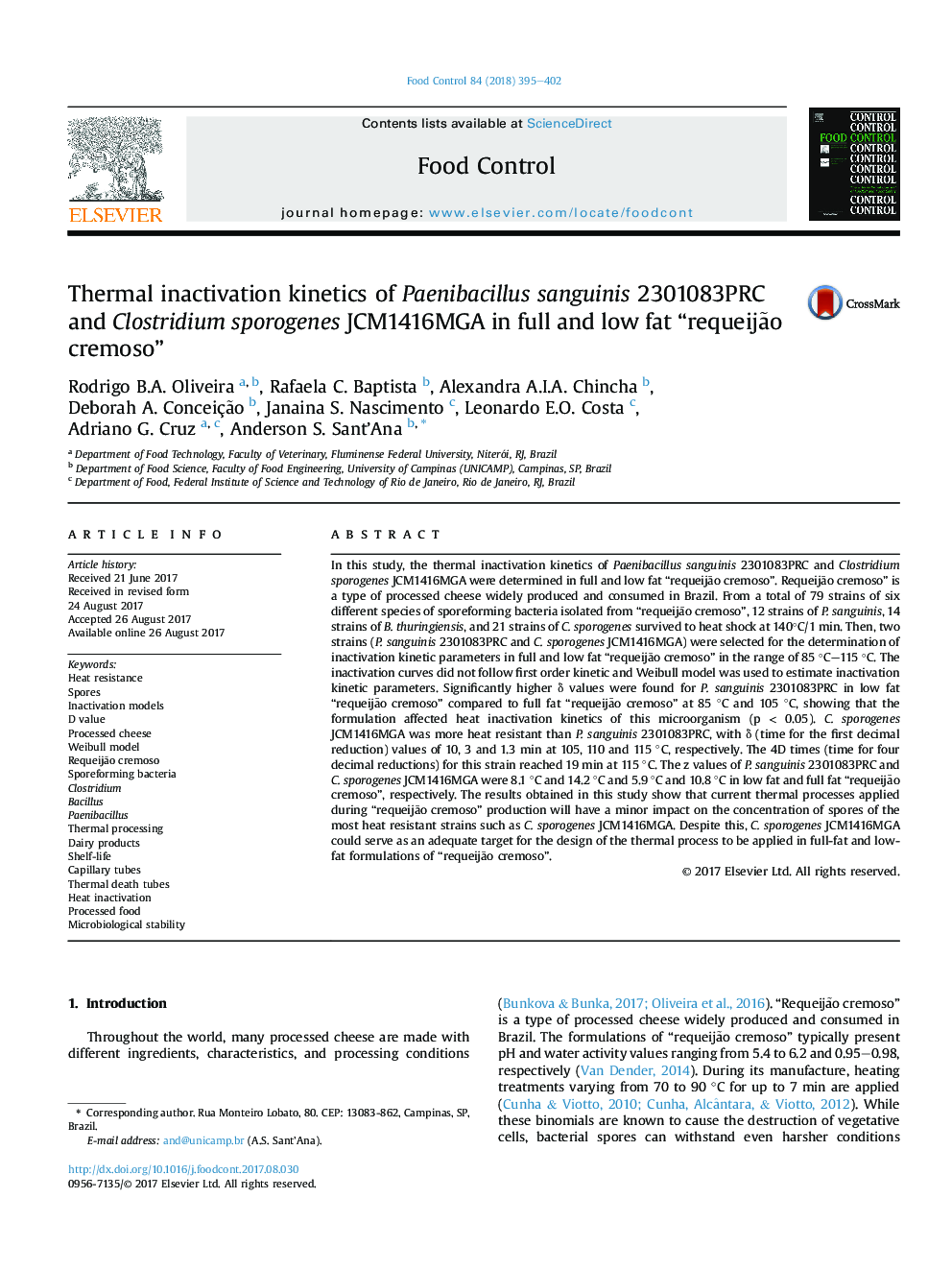| کد مقاله | کد نشریه | سال انتشار | مقاله انگلیسی | نسخه تمام متن |
|---|---|---|---|---|
| 5767324 | 1628380 | 2018 | 8 صفحه PDF | دانلود رایگان |

- Heat resistance of sporeforming bacteria was determined in requeijao cremoso.
- The formulation affected the heat inactivation kinetics of P. sanguinis at 85 °C.
- The δ for Clostridium sporogenes (CS) was 10, 3 and 1.3 min at 105, 110 and 115 °C.
- Thermal processes applied in requeijão cremoso have minor impact on CS spores.
- CS spores should be the target for the design of requeijão cremoso thermal process.
In this study, the thermal inactivation kinetics of Paenibacillus sanguinis 2301083PRC and Clostridium sporogenes JCM1416MGA were determined in full and low fat “requeijão cremoso”. Requeijão cremoso” is a type of processed cheese widely produced and consumed in Brazil. From a total of 79 strains of six different species of sporeforming bacteria isolated from “requeijão cremoso”, 12 strains of P. sanguinis, 14 strains of B. thuringiensis, and 21 strains of C. sporogenes survived to heat shock at 140°C/1 min. Then, two strains (P. sanguinis 2301083PRC and C. sporogenes JCM1416MGA) were selected for the determination of inactivation kinetic parameters in full and low fat “requeijão cremoso” in the range of 85 °C-115 °C. The inactivation curves did not follow first order kinetic and Weibull model was used to estimate inactivation kinetic parameters. Significantly higher δ values were found for P. sanguinis 2301083PRC in low fat “requeijão cremoso” compared to full fat “requeijão cremoso” at 85 °C and 105 °C, showing that the formulation affected heat inactivation kinetics of this microorganism (p < 0.05). C. sporogenes JCM1416MGA was more heat resistant than P. sanguinis 2301083PRC, with δ (time for the first decimal reduction) values of 10, 3 and 1.3 min at 105, 110 and 115 °C, respectively. The 4D times (time for four decimal reductions) for this strain reached 19 min at 115 °C. The z values of P. sanguinis 2301083PRC and C. sporogenes JCM1416MGA were 8.1 °C and 14.2 °C and 5.9 °C and 10.8 °C in low fat and full fat “requeijão cremoso”, respectively. The results obtained in this study show that current thermal processes applied during “requeijão cremoso” production will have a minor impact on the concentration of spores of the most heat resistant strains such as C. sporogenes JCM1416MGA. Despite this, C. sporogenes JCM1416MGA could serve as an adequate target for the design of the thermal process to be applied in full-fat and low-fat formulations of “requeijão cremoso”.
Journal: Food Control - Volume 84, February 2018, Pages 395-402